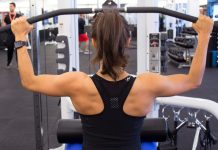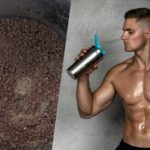Supplements required for Body Building Exercise
what are food supplements
The energy sources known as food supplements are those that include one or more dietary elements (vitamins, minerals, amino acids, herbs, or other Botanicals) that are meant to complement the diet. They can be found in a variety of formats, including as candies, drinks, tablets, powders, and capsules.
Food supplements are designed to improve a person’s general nutritional status or to address deficiencies or health issues. They serve as an additional source of nutrients rather than taking the place of a well-balanced diet.
Multivitamins, omega-3 fatty acids, probiotics, and herbal supplements are common food supplements. It is crucial to remember that the effectiveness and safety of dietary supplements are not always well-established and can change based on the product and a person’s unique situation.
Why a person needs food supplements
Food supplements can give us extra nutrients that we might not be getting enough from our regular diet, dietary supplements are necessary. Some people may still lack some nutrients despite eating a healthy, balanced diet because of things like inadequate absorption, a medical condition, or lifestyle choices.
For instance, vitamin B12, which is mostly found in animal sources, may be difficult for vegetarians and vegans to obtain in sufficient amounts. Low amounts of vitamin D, which is crucial for the health of the bones, may be present in people who reside in places with little sun exposure. Also, to support their energy requirements and muscle recovery, athletes and those with high physical demands may need additional protein and other nutrients.
Dietary supplements can be beneficial in controlling several medical issues, including pregnancy, osteoporosis, and iron deficiency anaemia. To ensure their safety and efficacy, food supplements should be consumed with a balanced diet rather than in place of it. They should also be used under the supervision of a healthcare provider.
what supplements required for body building exercise
When anyone do workout, uses a lot of energy and puts the muscles under a lot of strain. So, those who participate in bodybuilding may need extra nutrients to support their energy requirements and muscle recuperation. Here are some examples of popular bodybuilding supplements:
1. Protein powder: Protein is necessary for building and repairing muscle. Whey protein powder is a popular option for bodybuilders since it is easily absorbed by the body.
2. Creatine: Creatine is a natural chemical that aids in boosting the generation of muscle energy during intense activity. When used with resistance exercise, it can increase muscular size and strength.
3. Branched-chain amino acids (BCAAs): BCAAs are necessary amino acids that support the development and repair of muscle tissue. Also, they can lessen exercise-related muscle aches and weariness.
4. Beta-alanine: By acting as a lactic acid buffer, beta-alanine is an amino acid that promotes muscle endurance.
5. Caffeine: A natural stimulant that can enhance athletic performance and lessen weariness.
In order to ensure their safety and effectiveness, supplements must be used in conjunction with a nutritious, well-balanced diet and under the supervision of a healthcare provider.
Types of Supplements
Supplements come in a wide variety of forms, each with special purposes and advantages. Listed below are a few of the most popular kinds of supplements:
1. Vitamin supplements: These products include one or more vitamins that the diet might be missing. Vitamin C, vitamin D, and vitamin B12 are a few examples.
2. Mineral supplements: They contain one or more minerals that may be deficient in the diet, such as calcium, magnesium, and iron.
3. Herbal supplements: These supplements include one or more herbs or varietals that are utilised for a variety of health benefits, including stress reduction and improved digestion. Echinacea, ginseng, and St. John’s wort are a few examples.
4. Supplements containing one or more types of protein, such as whey protein or plant-based protein, are available to help with muscle development and repair.
5. Supplements containing one or more amino acids, which help with the development of muscles, the production of energy, and other biological processes. Examples include creatine and BCAAs.
Omega-3 supplements: These supplements contain omega-3 fatty acids, which are crucial for heart health, inflammation reduction, and the health of the brain and the heart.
It is crucial to remember that dietary supplements shouldn’t be used in place of a nutritious, balanced diet, and that doing so will help assure their safety and efficacy.



















